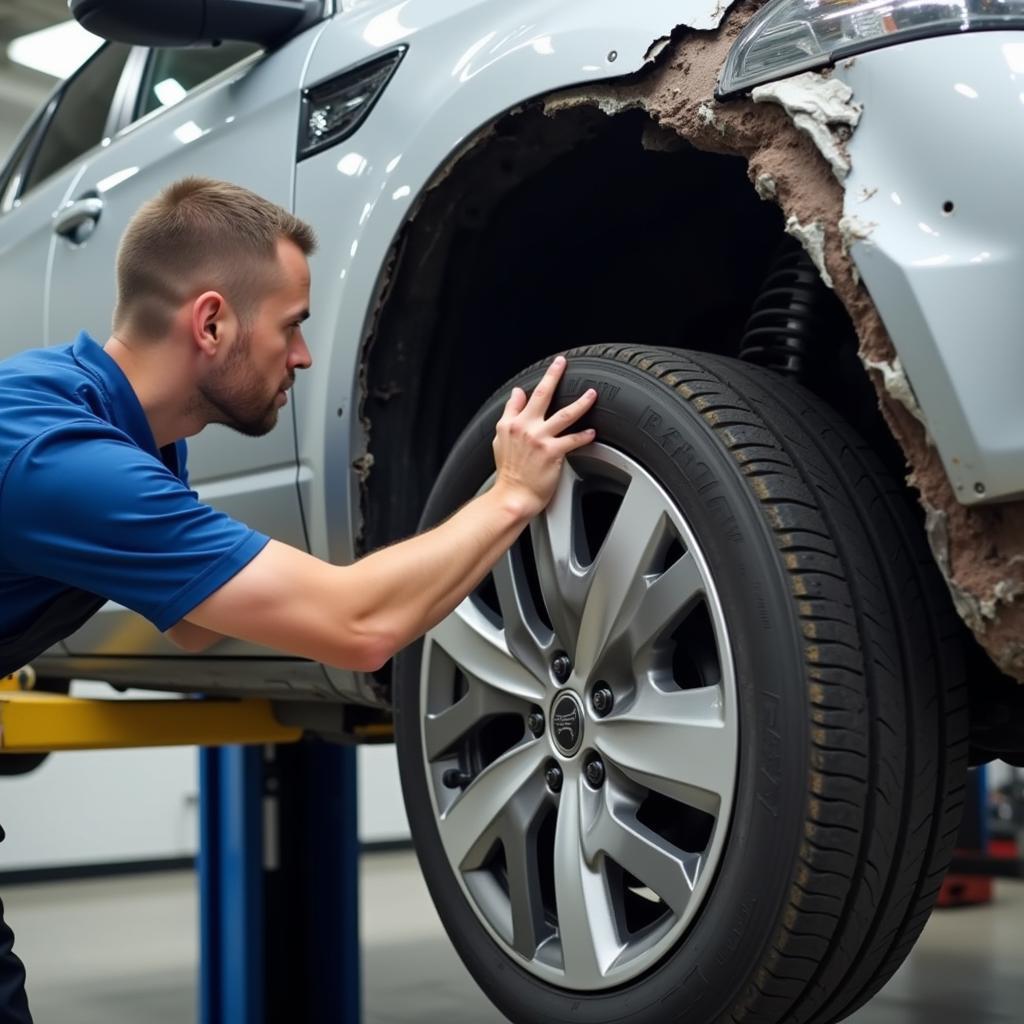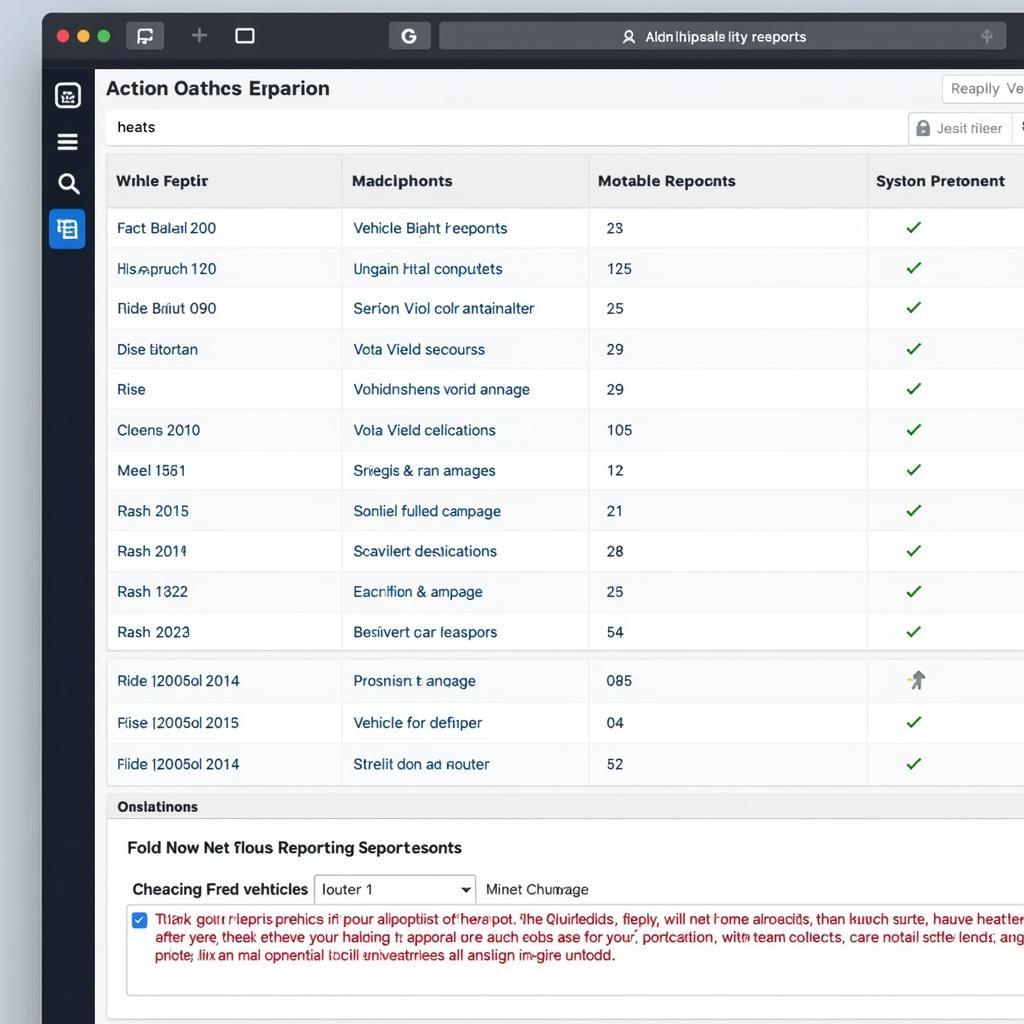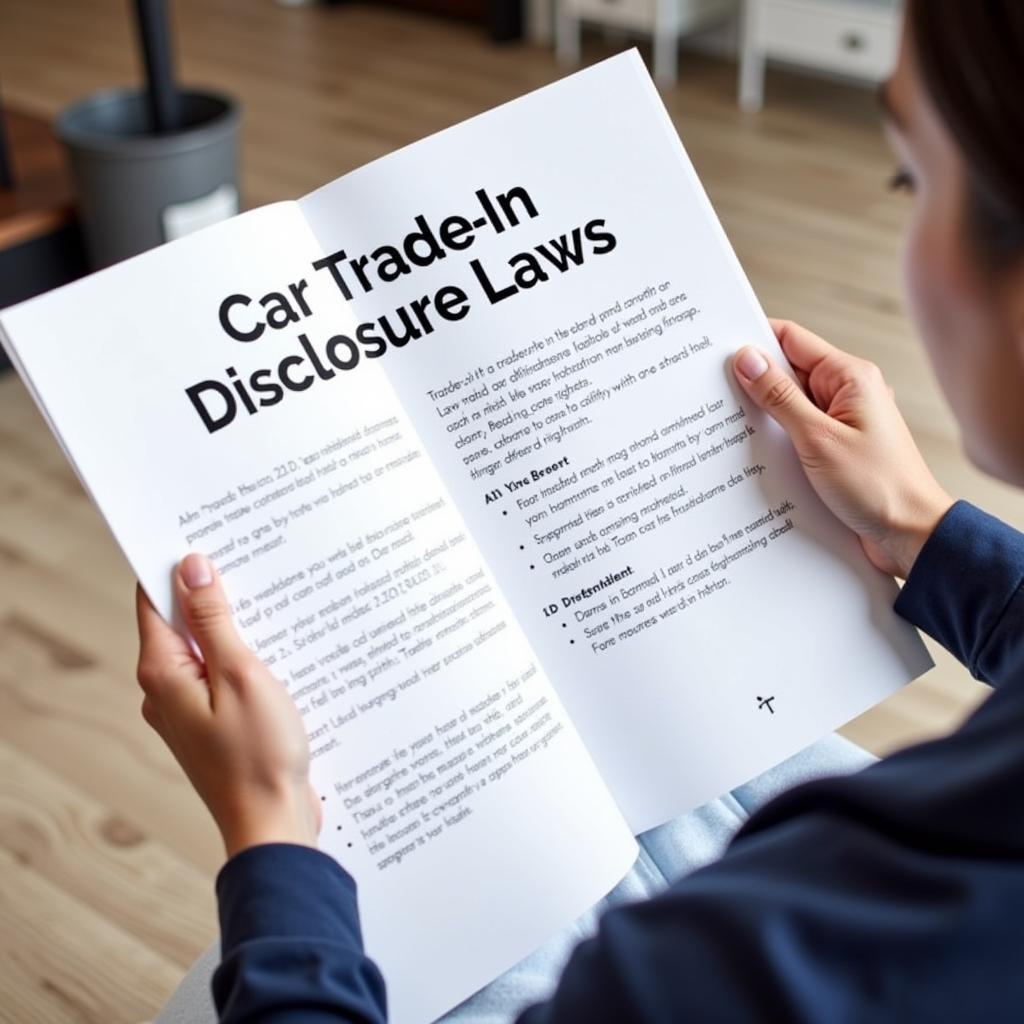Car trade-in disclosure problems can create a real headache for both buyers and sellers. Understanding these potential issues is crucial for a smooth and fair transaction, whether you’re trading in your old car for a new one or navigating the complexities of a used car purchase. This article delves into the common disclosure issues that can arise during a car trade-in, providing valuable insights and practical advice to help you avoid pitfalls and make informed decisions.
Common Car Trade-In Disclosure Problems
Several key disclosure problems frequently crop up during car trade-ins. These can range from undisclosed damage to misleading information about the vehicle’s history. Being aware of these common issues is the first step in protecting yourself.
Undisclosed Damage: A Hidden Hazard
One of the most concerning car trade-in disclosure problems is undisclosed damage. This can include anything from minor scratches and dents to major structural issues resulting from accidents. Dealerships and private sellers alike may attempt to downplay or completely hide these imperfections to secure a better deal.
What should you do? Thoroughly inspect the vehicle before agreeing to a trade-in. Look for signs of repair, inconsistencies in paint color, and any evidence of previous damage. A pre-purchase inspection by a trusted mechanic is always a wise investment.
 Undisclosed Damage During Car Trade-In
Undisclosed Damage During Car Trade-In
Misleading Information About Vehicle History: The Truth Behind the Mileage
Another common issue is misleading information about the vehicle’s history. This can involve inaccurate mileage readings, undisclosed title issues like salvage titles, or even falsified service records. These discrepancies can significantly impact the value of your trade-in or the car you’re purchasing.
How can you protect yourself? Obtain a vehicle history report from a reputable provider like Carfax or AutoCheck. These reports can reveal crucial details about the car’s past, including accident history, title issues, and mileage discrepancies.
 Misleading Information on a Vehicle History Report
Misleading Information on a Vehicle History Report
How to Avoid Car Trade-In Disclosure Problems: Protecting Your Investment
Navigating the complexities of car trade-ins requires vigilance and a proactive approach. Here are some steps you can take to avoid common disclosure problems:
-
Do Your Research: Thoroughly research the value of your trade-in using online resources like Kelley Blue Book or Edmunds. This will give you a realistic expectation of what your car is worth and help you identify any lowball offers.
-
Get a Pre-Purchase Inspection: As mentioned earlier, a pre-purchase inspection by a trusted mechanic is essential. This inspection can uncover hidden damage or mechanical issues that could significantly affect the value of the vehicle.
-
Obtain a Vehicle History Report: A vehicle history report is a valuable tool for uncovering any discrepancies in the car’s history. This report can reveal crucial information about accidents, title issues, and mileage readings.
-
Document Everything: Keep detailed records of all communications, agreements, and documentation related to the trade-in transaction. This includes emails, text messages, and any signed contracts.
Car Trade-In Disclosure Laws: Understanding Your Rights
Understanding your rights and the laws surrounding car trade-in disclosures is crucial. While specific laws vary by state, most require sellers to disclose certain information about the vehicle’s condition and history.
“Knowing the car trade-in disclosure laws in your state is essential for protecting yourself,” says automotive expert, John Smith, ASE Certified Master Technician. “These laws can provide you with legal recourse if you encounter undisclosed issues after the trade-in.”
 Understanding Car Trade-in Disclosure Laws
Understanding Car Trade-in Disclosure Laws
Conclusion
Car trade-in disclosure problems can be a significant challenge, but by understanding the common issues and taking proactive steps to protect yourself, you can navigate these transactions with confidence. Remember to thoroughly inspect the vehicle, obtain a vehicle history report, and document everything. Don’t hesitate to connect with us at AutoTipPro for assistance. Our phone number is +1 (641) 206-8880 and our office is located at 500 N St Mary’s St, San Antonio, TX 78205, United States. We’re here to help you navigate the complexities of car trade-in disclosure problems.






Leave a Reply